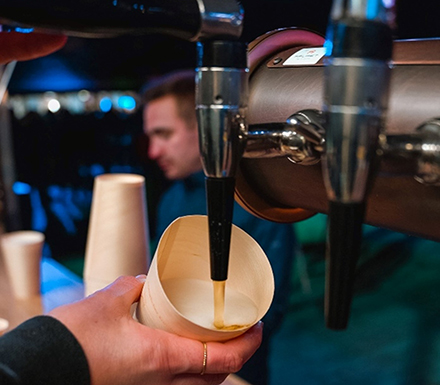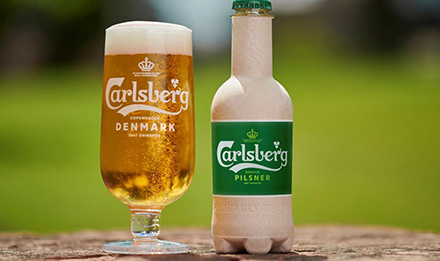 Soon, music and sports enthusiasts in Switzerland will be drinking beer from renewable, compostable wooden cups and their beer will come packaged in fibre bottles if it’s Carlsberg. Source: Timberbiz
Soon, music and sports enthusiasts in Switzerland will be drinking beer from renewable, compostable wooden cups and their beer will come packaged in fibre bottles if it’s Carlsberg. Source: Timberbiz
In Switzerland, Feldschlösschen – maker of Carlsberg beer – has teamed up with Swiss start-up Arboloom to trial innovative wooden cups as a potential alternative to the millions of single-use plastic cups vendors use to serve beers at festivals, concerts and sports events.
The cups are made out of thin veneer, which requires very little processing as it is cut directly from the trunks of trees – a renewable resource. After use, the cups can be returned to the environment through composting, recycled into other products or incinerated as a renewable fuel source.
Across their lifecycle, these wooden cups have a carbon footprint three times smaller than single-use plastic cups.
“As the leader in the Swiss beer market, it is great to see that Feldschlösschen is partnering up with sustainable start-ups to get rid of one-way plastic by using locally produced, sustainable beer cups,” said Natalia Arboloom, CEO, Arboloom Cup AG.
Carlsberg has gone a step further partnering to rethink its beer packaging.
After starting the Fibre Bottle project in 2015 with several partners, in 2019 it matured into a formal partnership with Paboco.
In 2022 it made bio-based and fully recyclable bottles available to consumers in the largest ever trial.
A significant milestone for the new generation fibre bottle is its plant-based PEF polymer lining, which has been developed by partner Avantium, a leading expert in renewable chemistry.
PEF is made entirely from natural raw materials, is compatible with plastic recycling systems, and can degrade into nature should it end up outside national recycling systems.
Beyond its sustainable packaging benefits, PEF functions as a highly effective barrier between the beer and the fibre outer shell, protecting the taste and fizziness of the beer better than conventional fossil-fuel-based PET plastic.







